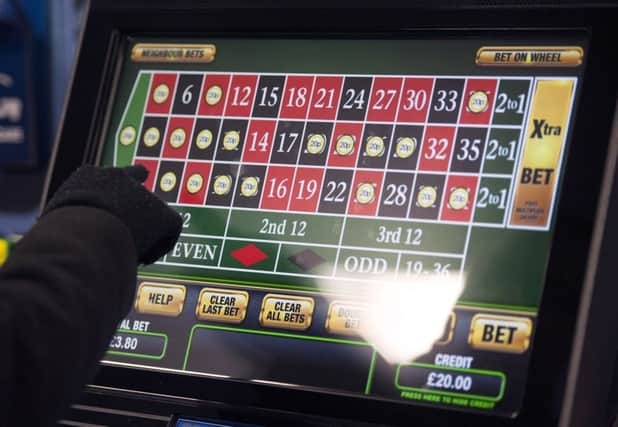Aisha Iqbal: Time to ban gambling ads - and stop betting on our future


Estimates have said that 10,000 people in the city are already in the grips of gambling addiction, and a further 30,000 are at risk.
The hypocrisy in our policymakers’ approach to this issue - as with many self-inflicted social ills - is staggering.
Advertisement
Hide AdAdvertisement
Hide AdOn the one hand, we are in the thrall of the gambling industry, which - according to some recent research - is worth about £12bn a year.
And on the other, we are trying to cure the ills that it precipitates,
I’m not saying we should ban casinos and online gambling and gaming machines, but there should certainly be stronger measures and legislation in place to stop vulnerable people from getting caught in this trap.
And a start would be stopping the glamorization of gambling of all kinds.
Advertisement
Hide AdAdvertisement
Hide AdIn the same way that cigarette advertising is restricted and comes with Government health warnings, there should be severe limits on the promotion of online gambling, especially on daytime TV where it seems prevalent.
Almost as astonishing as the value of the industry is the amount it spends on advertising, with some suggesting that online casinos have doubled their marketing budgets in recent years.
I’m not a fan of prohibition of any kind. But, like cigarettes before it, the gambling epidemic is a ticking time bomb which can and will have long lasting effects on individuals, families and the very core of our social structures.
It’s time to stop betting on our own and our children’s futures, and rein in this monster in the making.
THE AGE OF (MIS) COMMUNICATION
Advertisement
Hide AdAdvertisement
Hide AdThere’s a trailer doing the rounds at the moment for the film ‘The Shape of Water’, which I’m really looking forward to seeing.
It explores the nature of ‘connection’ between individuals, and that’s something I find myself increasingly pondering.
The brilliant film ‘Arrival’ did the same, and in our troubled times, I think both have great points to make.
One of the city’s MPs was targeted with swathes of vile online abuse this week and it’s something that we increasingly see.
Advertisement
Hide AdAdvertisement
Hide AdI suppose it goes with the territory somewhat, in this social media age, for people in the public eye to be targeted.
But it says so much about our broken society that we have lost all ability to discuss our differences properl.
Dialogue and discourse has gone out of the window, to be replaced by reactionary, kneejerk and hateful spoutings.
The big social media companies have to take some of the blame, but the responsibility for nastiness lies ultimately with the person who utters it.
Advertisement
Hide AdAdvertisement
Hide AdI’m not for throwing every keyboard warrior and sender of a vile tweet into jail. I much prefer the ‘make them meet the person they targeted’ route.
But online anonymity is the great emboldener, that’s just a sad fact of our times.
I’m sure there’s a point where out society will come full circle, and when the haters have spewed all the bile they possibly can, decency en masse will make a return.
But in this age of mass communication - when we have more methods of connecting with each other than ever before - it’s so sad that we are more disconnected from our basic decency than we have ever been.
Advertisement
Hide AdAdvertisement
Hide AdWe are allowed to disagree with each other on key issues, that is the beauty of our democracy.
But lasting change and justice won’t come about through abuse and mud slinging, it will come about through sitting down and talking things through.
The dehumanizing effect of social media - and our actions on it - can only be reversed by us backing away from the ‘media’ bit, and getting back to the ‘social’.